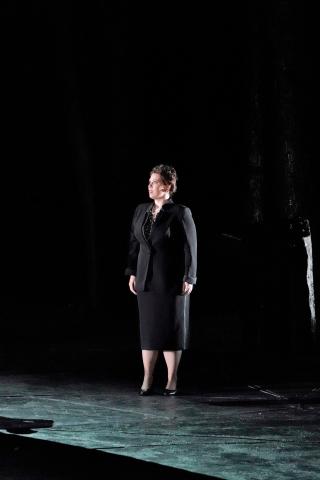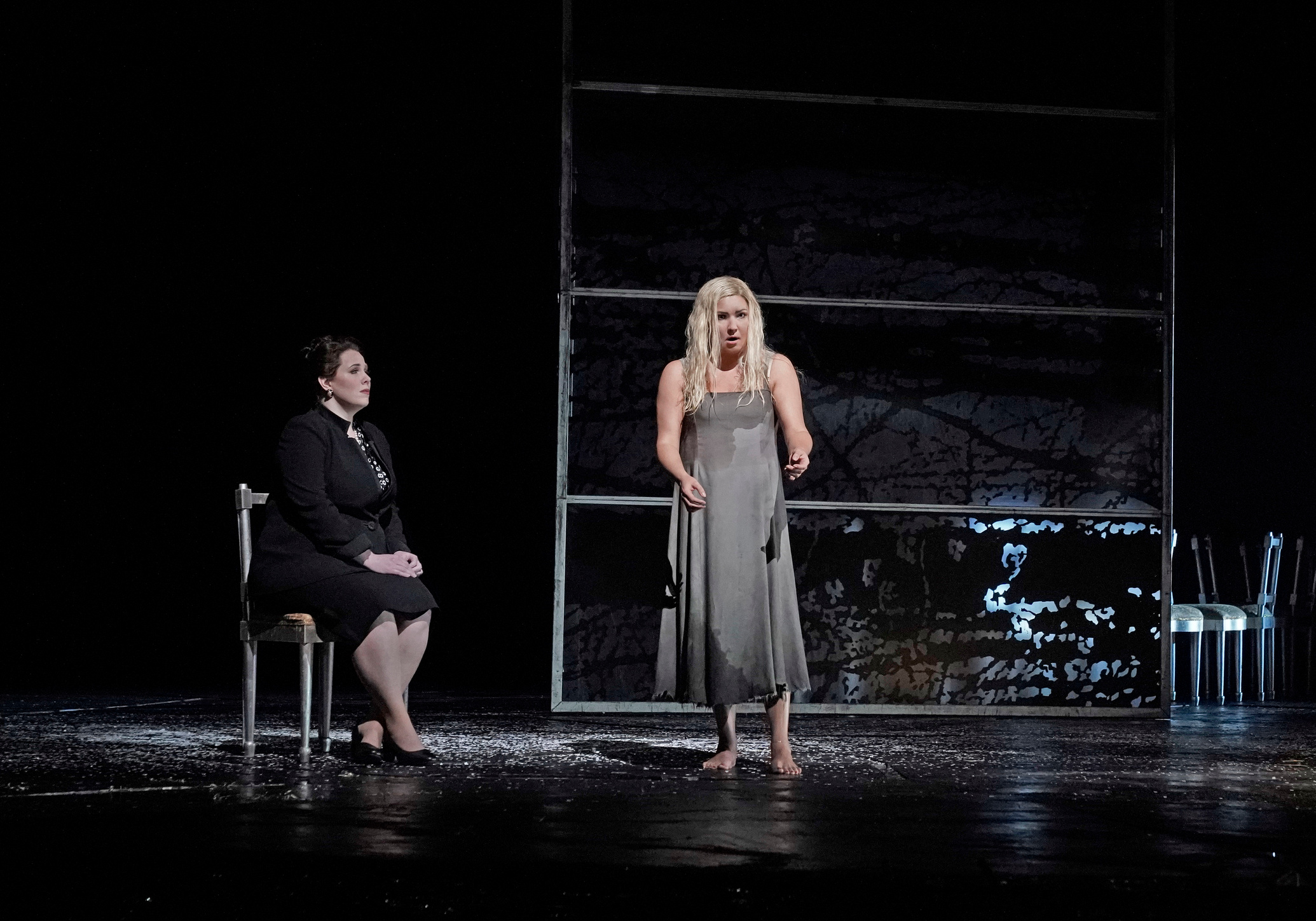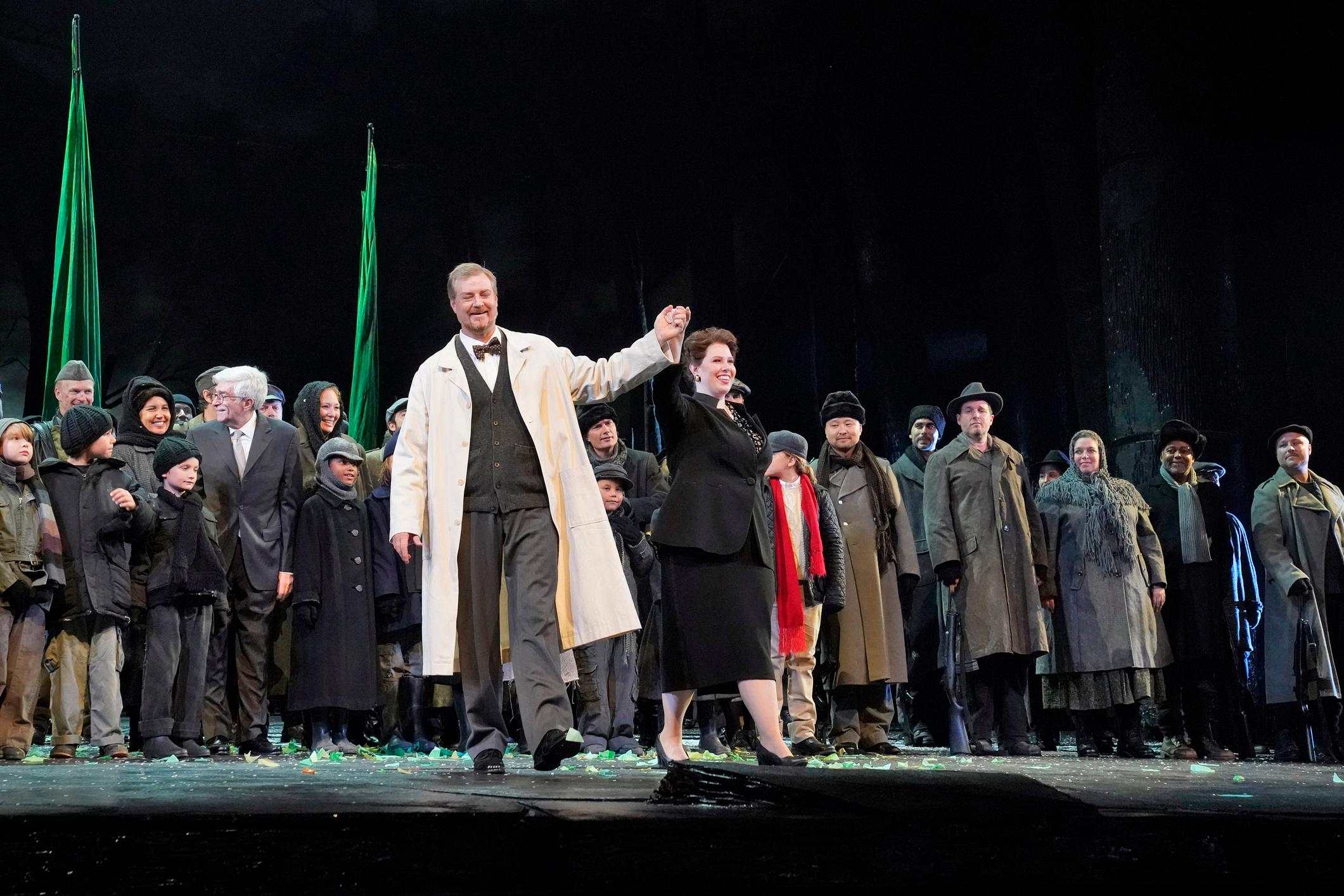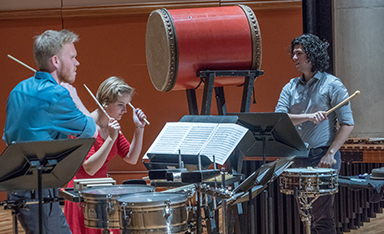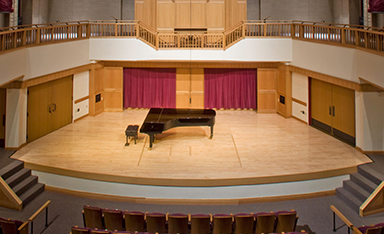DU Alumna Takes Center Stage at The Met
Sarah Cambidge (BM ’11, MM ’13) sings the role of the Lady in Waiting.
It’s the dream of every aspiring opera singer: to appear on stage at the Metropolitan Opera in New York. For Sarah Cambidge (BM ’11, MM ’13), a graduate of the University of Denver’s Lamont School of Music, the dream came true in September, when she made her Met debut in the company’s production of Verdi’s “Macbeth.” Cambidge sings the role of the Lady in Waiting, appearing with such opera luminaries as soprano Anna Netrebko, baritone Željko Lučić and tenor Matthew Polenzani.
Cambidge has risen through the opera ranks since graduating from Lamont, performing on stages in the U.S. and Europe and in 2017 winning a coveted Adler Fellowship at San Francisco Opera. She will appear again at the Met in January, understudying the role of the Countess in “The Marriage of Figaro.”
The DU newsroom recently caught up with Cambidge to talk about her road to the Met and what it’s like to sing on that famous stage.
Q: In 2015, you made it to the semifinals of the Metropolitan Opera National Council Auditions, a program designed to discover promising young opera singers. Was there any connection between that audition and landing the role in “Macbeth”?
A: The National Council Auditions put you on their radar, but I did a showcase through my management company last fall in New York, and that’s where [the Met] heard me most recently. They were looking for ways they could fit me into their season. I’m singing the Lady in Waiting, which is a very small role, but it’s incredible considering the only other female in the main cast is Anna Netrebko, who is one of the biggest sopranos in the world right now. So that’s pretty cool.
Q: What is the rehearsal process for a Met production? Are you doing most of the musical preparation on your own time?
A: You come 100% prepared on your own musically. You’re off-book, you don’t need your score any longer, you’re fully memorized, you’ve worked on the diction and the music. Then you start rehearsal, and that’s mostly just staging. There usually will be some music rehearsals, usually at the beginning, but with a cast like the Met has, with Matthew Polenzani and Anna Netrebko, it was quite incredible. There was no need to have much music rehearsal since most of them have already sung the roles.
Q: The show opened Sept. 25 — what was it like to walk out on that stage in front of an audience for the first time?
A: Super surreal. It was so cool. This is the biggest company in the United States, and to get to be one of the few singers who in their career gets to sing here was really an incredible experience. To walk down the halls and know who was there originally and that all of your idols have sung there or are still singing there — getting to be a part of that is incredible.
Q: You already have performed with so many companies here and in Europe, but did you learn anything new performing at the Met?
A: You learn something new with every show. Lamont prepared me so well for going forward in this career, but every single production you learn something new. If it’s a really long role, you’re learning how to pace yourself. Or if it’s a really high role, you’re learning how to sing in that tessitura for so long. Every production has something different, and this one was, ‘How can I make sure that within the ensembles it’s so cohesive?’ I get to sing a lot of the high notes that Lady Macbeth sings in the ensembles, but at the same time I’m also doubling a lot of the things that the chorus is singing. So just making sure that it stays really cohesive and tight with the whole ensemble. That’s been really fun.
Q: One of the big steps on your road to the Met was the Adler Fellowship in San Francisco. What was that experience like?
A: It was a complete life-changer. While I was there I was able to be a part of so many different productions. I was in Francesca Zambello’s [production of Wagner’s ‘Ring’ cycle], which is the longest opera that the opera world puts together. It’s four separate operas put over four different evenings, and they total about 10 hours of opera. People come to see the whole cycle, and they’ll sit through all four evenings of performances. It’s the biggest thing that the opera world does, and to be part of one while I was a young artist was incredible.
Q: You have come so far — what’s the secret to your success?
A: It’s a lot of hard work, and it’s a lot of being at the right place at the right time. And making sure that every time you step out on that stage, you’re putting your best foot forward. Thankfully, Lamont prepares you really well for that. I still study with Ken Cox, who was the head of the Lamont opera program and is now retired. Just working toward this with Lamont’s help and so much support from them — they’ve been incredible.
